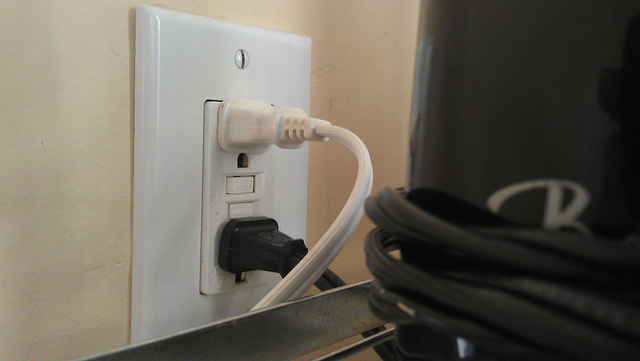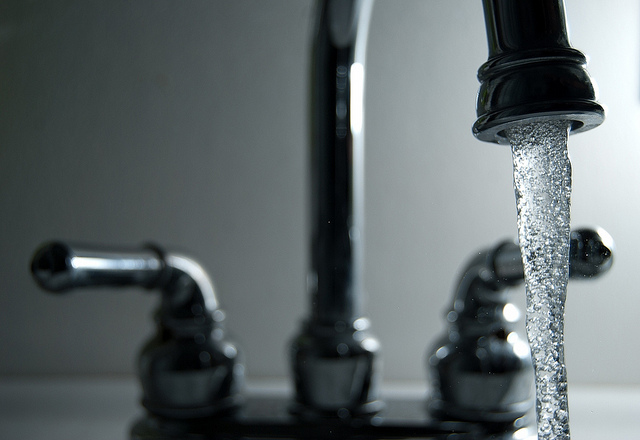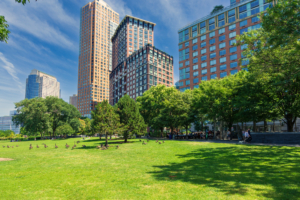Let’s face it, New York City is the not the easiest place to save money, but savvy New Yorkers know how to stretch the dollar. Your energy bill is a great place to start. And it’s easier than you think to make your rental, condo, or co-op more energy efficient. Get started with some recommendations from the New York State Energy Research and Development Authority (NYSERDA) on how to make your bank account — and the planet — happier.
 Bring your electronics and light bulbs into the 21st century
Bring your electronics and light bulbs into the 21st century
To start seeing some savings on your energy bills consider getting new hardware. ENERGY STAR versions of almost all types of electronics are out there. According to Laura Humphrey, a senior project manager at NYSERDA, “ENERGY STAR electronics are generally 25-35 percent more efficient than standard models. Upgrading TVs, tablets, monitors and audio systems to ENERGY STAR products can save $200 over the life of the products.”
Talking about electricity: the old-school incandescent light bulbs are being phased out in favor of more energy-efficient bulbs. LED light bulbs can reduce energy usage by 75 percent over conventional incandescent bulbs and can help you save $40 to $135 over the life of the light bulb.
Replace your old appliances with new ones, but don’t put your wallet through the wash
If you rent in NYC, you may not have much control over many of the appliances in your home, but when you’re in the market for one, ENERGY STAR will be the best guide to helping you lower energy bills.
Affordable and easy-to-replace smaller appliances such as dehumidifiers and air purifiers are available in ENERGY STAR certified versions and can help you save up to $25 per year on bills. For larger appliances such as fridges, stoves/ovens, and dishwashers — if you’re lucky enough to have one in NYC — you can save $30-300 annually by upgrading to an energy efficient version.
Before investing in new appliances, take a look at Con Edison’s rebate program to help lower your costs. If you are worried about the hassle of getting larger appliances out of your fifth floor walk-up or persuading your super to help you, Con Edison can again help with their recycling and appliance removal program.

Source: Lizzardo via Flickr Creative Commons
Wipe out energy vampires
Did you know that most electronics in your apartment use energy when they’re switched off or plugged in — even your phone’s charger? This is known as the vampire load. On average, vampire loads can add an extra $200 in yearly energy costs. NYSERDA recommends taking control of your vampire loads by investing in advanced power strips or smart strips to cut down on wasted energy. There’s more than one type of smart strip too; some are on timers; others have sensors that react to the wave of a hand. Pick the ones that meet your needs and your budget and drive a stake through the heart of vampire loads.
Rethink your heating and cooling game
A big chunk of your energy bill goes to paying to keep your apartment comfy: just look at the difference in your bill in August and September. But there are several ways to keep your apartment comfortable when the weather gets out of control. If your apartment is overheated, drafty, too cold, or too loud from building equipment (like banging radiator pipes), talk to your super and/or building management. If your apartment is too cold in the winter, it may be from inefficient windows or insulation. Your building’s management is also responsible for sealing gaps around air conditioning units (ACs) and doors, tightening windows, and removing space around ducts to ensure the air cooled by ACs stays in the room and not escaping to the outdoors. NYSERDA can help them do this at no or low costs. National Grid and Con Ed also provide rebates to improve heating and cooling efficiency.
If insulation, air sealing, and windows aren’t the problem, a remotely programmable AC unit may help give you more control of your cooling system during the summer months – though it’s up to you to keep it at an affordable level. (Con Edison says cooling costs go up by 40 percent once you go below 78 degrees F.) With a little forward planning, a programmable AC, and access to the internet, you can come home to a comfortable temperature without running your bill up. Con Edison also has a rewards program for smart ACs so you can save money and energy upfront and in the long run.

Source: Steve Johnson via Flickr Creative Commons
Save water, too
Saving on water no longer means skipping a shower or two. You can save water without spending extra on deodorant. If you upgrade to high-efficiency and high-pressure and/or Watersense-labeled showerheads and faucets, you can enjoy the same performance you’re used to (or better) while saving water and money. Menachem Katz, a project manager at NYSERDA says: “By using high efficiency and high pressure shower heads and faucets, you can save up to 700 gallons of water per year.” Saving water can save you money on heating too; the more efficient you are with water, the less you spend on heating water you won’t even use.
If your landlord has plans to renovate your bathroom, ask for an efficient toilet. Efficient toilets use nearly 75 percent less water per flush. The NYC Department of Environmental Protection offers an incentivized program to landlords to upgrade.
Talk to your landlord and building management (they don’t bite!)
Upgrading some of your small appliances, using advanced power strips and internet-connected room air conditioners, and installing high-efficiency water fixtures are some of the ways you can take control of your energy bill.
Other things such as big appliances, heating systems, air-sealing and windows, require a conversation with your landlord, superintendent, or building management. Let them know these upgrades will make the unit more attractive to future tenants, since it will save them money too. be sure to mention the programs offered by Con Edison (for electricity), National Grid (for gas), and NYSERDA (for all things energy) to improve your building’s performance.
Michael Colgrove, a director at NYSERDA, also recommends you “Ask about efficiency before you sign a lease to see what you’re in for, and so landlords know that energy savings are important to tenants. Another great time to talk efficiency is when you’re renewing your lease or during renovation discussions.”
Related:









